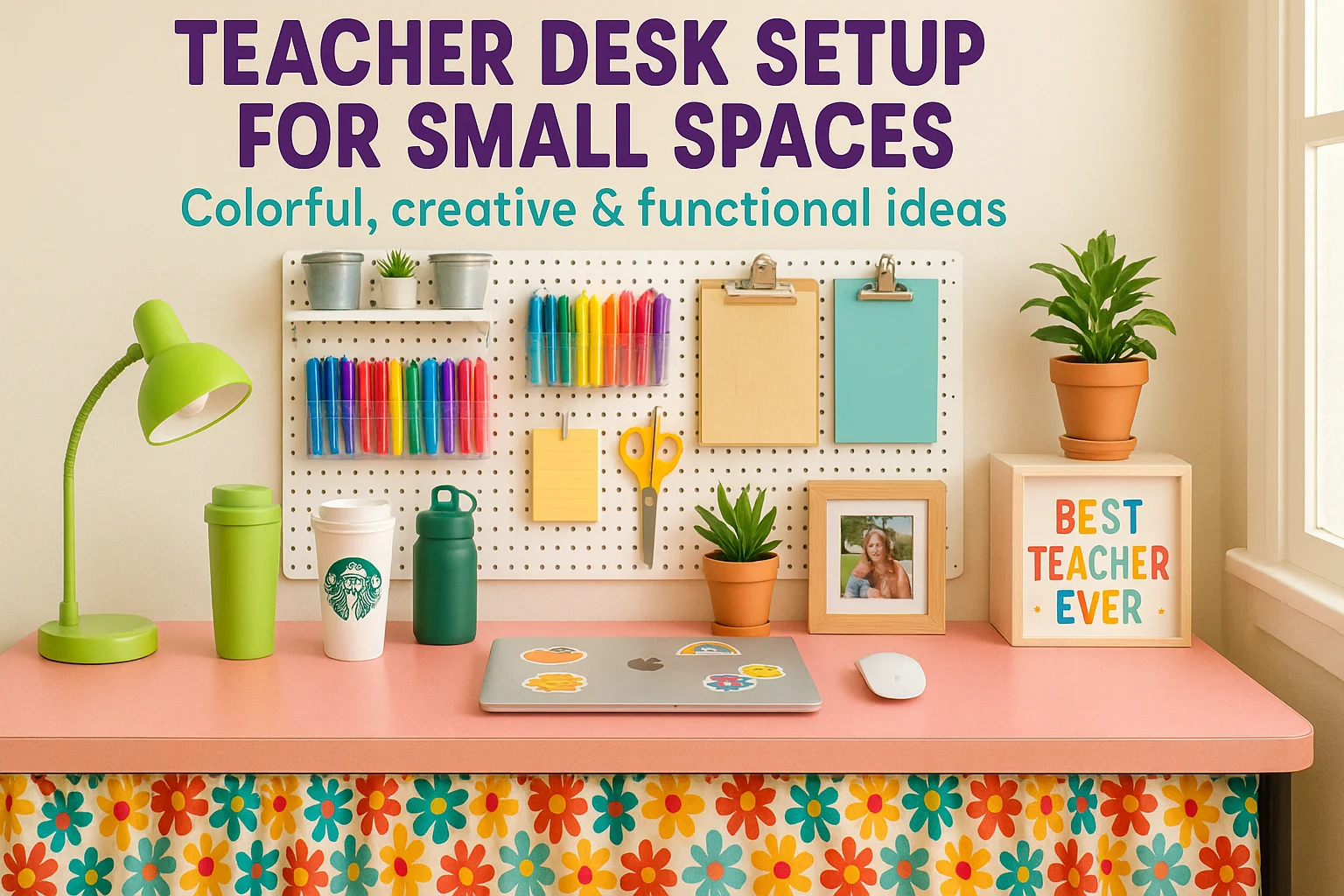Your cart is currently empty!

How to reduce stress as a teacher.
Teaching is rewarding but also incredibly demanding. Between lesson plans, grading papers, and supporting students, it’s easy to feel swamped.
This post may contain affiliate links. At no cost to you, I may earn a small commission if you click on any affiliate link within my blog.
Stress levels among teachers are rising every single year. So how do we reduce teacher stress?
Let’s face it, teaching is a taxing profession, it tests your patience left, right and centre. It’s tiring, exhausting and overwhelming. There are countless responsibilities and pressures placed on teachers these days, no wonder many find it hard to cope.
Teacher stress is inevitable as there will always be bumps in the road. Some stress is ok but chronic stress can lead to all kinds of mental and physical illnesses.
This blogpost will take a look at what causes teacher stress and possible ways to manage it effectively.

Teacher Overwhelm
There are times when the workload, responsibilities and challenges all become too much. Maybe it is the lack of a suitable leadership structure or constant leadership changes which leads to poor support. Maybe it is the non-stop noise from all the messages and emails on school chat platforms and channels.
The struggle is real
I feel like the longer I’ve been a teacher, the more I realize how much work I have to do. But I’ve also learned how important it is to manage my time and energy and work smarter not harder. I don’t believe in work-life balance as that suggests you should spend an equal amount of time in both your professional life and personal life. I’m more of a work-life harmony teacher these days. I need to work around my personal life, not the other way around.
Strategies to reduce teacher stress.
Here’s what works for me:
- Set priorities. My number one priority in my work day is teaching my classes. Who would have thought? So my priorities centre around being prepared for my lessons.
- Build unit plans for each topic. Planning the whole unit for each topic I’m teaching, helps me be prepared for each lesson. If I can plan out the whole unit over the number of weeks I have to teach it in, I then have each lesson ready to go accordingly. Planning ahead reduces stress, as I have each lesson organised in advance. If I teach the same unit each year then they only need tweaking each year.
- Make a to-do list each week. I plan to tackle a certain number of things each day. I am a list writer, so I write my to-do list in my teacher’s diary each week. I love to cross things off as they are done as it gives me a real boost and is very satisfying. On my busy days I may only get one thing accomplished. On my lighter days I try to get 3 or more things done.
- Slow down lessons – less is more. I don’t over complicate my teaching. Kids thrive on structure, routine and simplicity. So keep it simple.
- Say no to meetings when I can’t cope. There seems to be an endless calendar of meetings. My own children always ask me ‘why do you have so many meetings all the time’ to which I answer ‘I don’t know’! Many meetings I attend are mindless professional learning sessions of things I already do.
- Recognise stress triggers. Next time you feel the stress building it’s important to take note of what has caused it. Then you have a better way to recognise what to avoid or tackle the problem that presents. Also try to work out what you can control and what can’t you control.
- Breathe. Sounds weird but taking deep breaths throughout the day helps me to relax and take a moment. And try to focus just on your breathing itself. I use this technique to help me fall asleep at night as well. Every time your thoughts wander, bring your attention back to your breathing.
- Practice self care. This means more than taking a bubble bath or getting a massage. It’s imperative for teachers to set boundaries, turn off all notifications out of hours, find supportive colleagues, put yourself first and take control.
- Take mental health days. Every now and then, have a day of rest. There’s no need to tell anyone your personal situation. It’s just that, personal. No-one thinks about you when you are absent, they just get on with their day so you should just get on with yours, doing whatever you need to do to rest and recharge. At least once a year I take 3 days off in a row to rest. There’s no shame in asking your doctor for mental health leave that is stress related.
- Have a bank of easy lessons. Even though you may have planned a unit full of lessons, it’s important to have an easy lesson to run when you don’t have the energy or the capacity to function as you normally do. An example could be an educational video and video worksheet.
- Don’t mark everything. It takes up too much time to mark everything. There are many other ways student work can be reviewed, eg self assessment.
- Personalise your desk space. I’ve always been a lover of stationery. I used to hang out in the stationery aisle at the supermarket when my mum did the shopping as a kid. I’ve always loved having a desk setup with everything I need and things that make me happy. It grounds me while at work. Gives me a sense of belonging. A place to retreat to.
- Journal. During times when you students are doing independent work spend a few minutes writing down thoughts, dreams, goals, ideas. I have a few pages in my teacher diary for this.

Conclusion
Teacher stress and overwhelm will never go away completely but neither of them should ever control you. You have the ability to prevent this by setting boundaries, practicing self-care and building a support network. Feeling overwhelmed and dealing with stress as a teacher is manageable, but avoiding burnout is key. By taking actionable steps outlined in this post, you can enjoy a rewarding career as a teacher that can last as long as you want it to.




